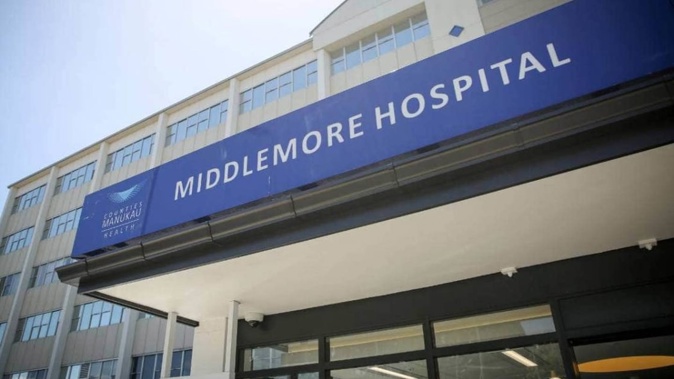
Middlemore Hospital doctors have made a public plea for only patients with “threats to life and limbs” to present at their emergency department because it is nearing full capacity.
ED doctors posted a video on Te Whatu Ora Counties Manukau’s Facebook page on Tuesday saying the department was “really busy right now”.
Emergency consultant Dr Matthew Clarke asked the public to “please keep our ED free for emergencies”, which he defined as “injuries or conditions which threaten life or limb”.
A charge nurse in the video says: “An easy way to think about it is if you need an ambulance or your doctor has told you to come to the hospital, then it’s probably an emergency.”
Health NZ - Te Whatu Ora has been approached for further comment.
A report on key health metrics released this week showed 30,818 people presented at Middlemore’s ED in the year to September, up from 28,018 the previous year.
Of that total, just 60 per cent were admitted, discharged or transferred within six hours, which is the national target. That was down on 64.8 per cent from the previous year. The trend was similar at EDs around the country.
Emergency departments are under severe pressure because of a growing, ageing population and an increase in people with chronic and complex conditions.
Te Whatu Ora’s interim chief clinical officer Dr Richard Sullivan said these factors significantly increased demand for services and stretched services.
“Our challenge is both to reduce demand on hospitals where we can, such as through investments in prevention and the good work of primary and community care, and to meet the underlying growth in demand as best we can.”
Herald reporting earlier this year found EDs across the country had to take drastic measures to cope with demand, including diverting ambulances to other hospitals, “hot-bedding” patients,and using overflow rooms or placing patients in corridors.
Primary care is also stretched. The annual New Zealand Health survey published last week showed one in five adults could not see their GP, with most saying they had to wait too long for an appointment.
This meant many patients ended up at emergency departments instead, or their conditions worsened because they were unable to get timely treatment in the community.
“New Zealanders need to be able to access care in the community earlier, but that is failing with the end result being overflowing emergency departments and hospitals at capacity,” said General Practice NZ chairman Dr Bryan Betty.
/cloudfront-ap-southeast-2.images.arcpublishing.com/nzme/2PCBAALQVNDXRDXRXT5H5PTZTM.JPG)
He said GPs were dealing with more complex medical needs, increased pressure from patients, workforce shortages and an outdated funding model.
Health Minister Shane Reti has promised some immediate responses to demands from ED doctors, such as increased security to deal with a rise in abuse and assaults.
But he has warned that filling workforce gaps in both the hospital and community settings will take longer.
The previous Government trialled several new measures during the busy winter months, including ambulance staff video-calling specialists or ED doctors to get advice on patients, and greater roles for pharmacists and primary care health workers. A review of those measures is ongoing.
Middlemore ED doctors advised in the video that if people are feeling unwell but it is not an emergency, they should visit their GP, local accident and emergency or an after-hours centre.
If they are in doubt, they should call Healthline on 0800 611 116.
“If you are sick, please do get treatment but make sure it’s the right care for your condition,” Clarke said.
Isaac Davison is an Auckland-based reporter who covers health issues. He joined the Herald in 2008 and has previously covered the environment, politics, and social issues.
Take your Radio, Podcasts and Music with you









